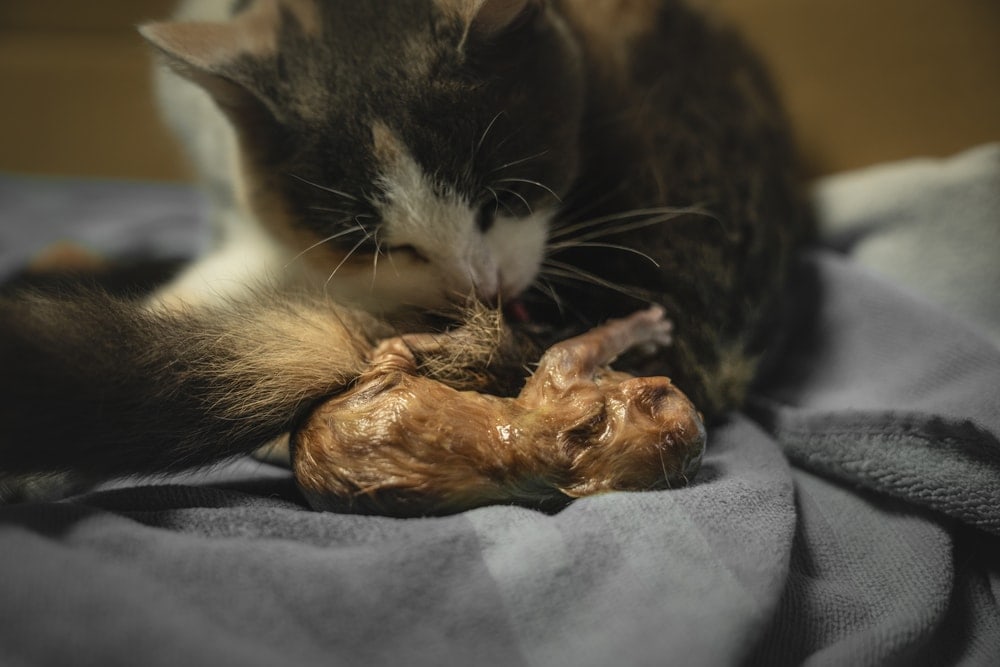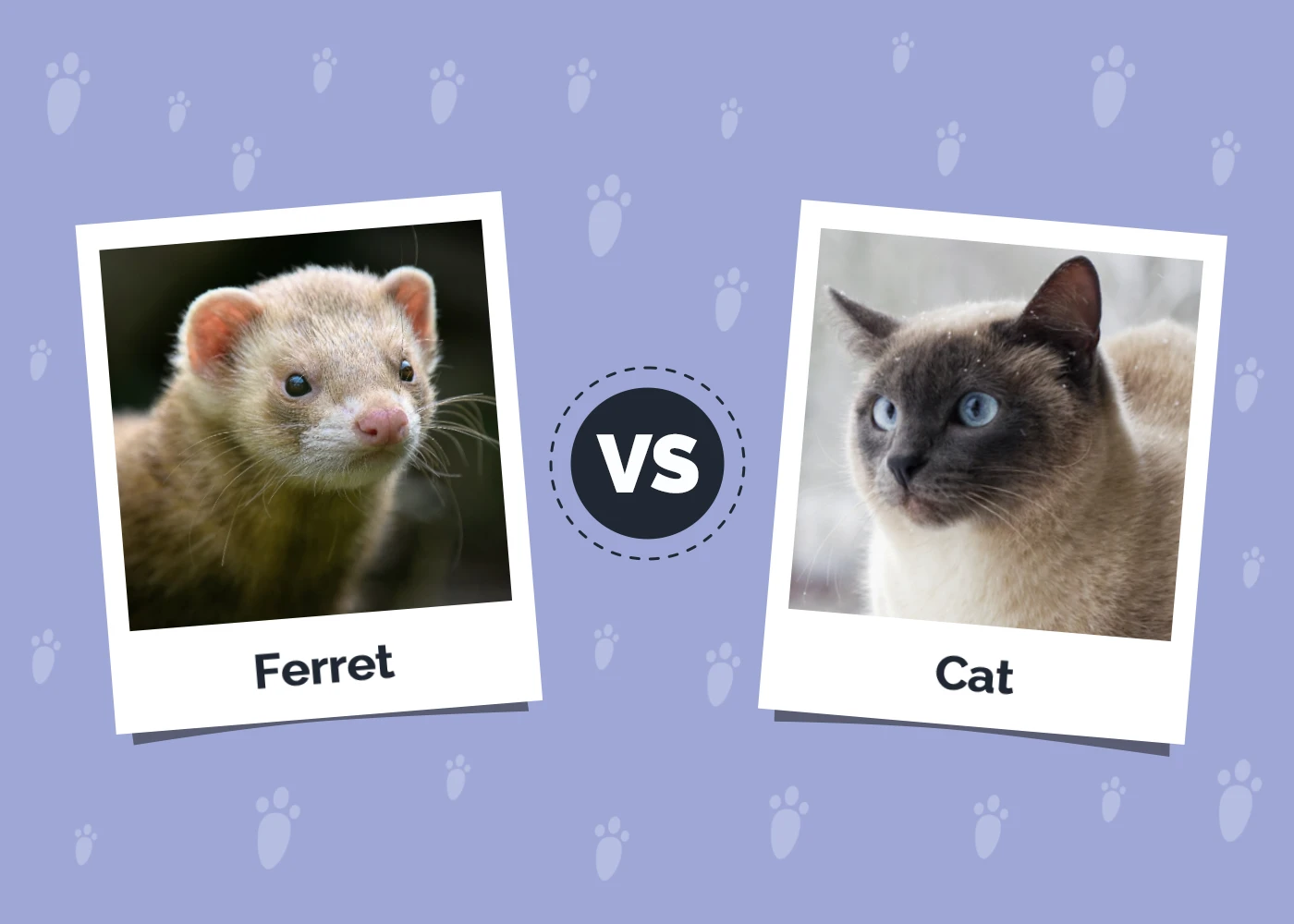Can Cats Eat Greek Yogurt? Vet Approved Facts & Safety Guide
By Lorre Luther
Updated on

Click to Skip Ahead
Greek yogurt is a creamy, thick dairy product that’s a strained version of regular yogurt. It’s made by draining the moisture from regular yogurt. It’s a popular breakfast food and dessert in many homes worldwide. But is it okay to share Greek yogurt with your cat? Plain, unsweetened yogurt often contains relatively few ingredients, mostly milk and yogurt cultures, so nothing in Greek yogurt is toxic to cats.
Still, it may cause stomach issues for cats that have trouble digesting lactose. As tempting as it might be to share plain, unsweetened Greek yogurt with your buddy, moderation is vital, and it’s essential to stick with brands that only have safe ingredients for cats to eat.
Can Cats Drink Milk?
Most cats lose the ability to process milk as they grow up, which can lead to digestive issues when they consume dairy products. But just like some people have no trouble eating cheese and it sends others straight into digestive purgatory, some cats can digest lactose, and others simply can’t.
Cats that can tolerate dairy products can usually comfortably consume small portions of milk, butter, yogurt, and cheese. Hard cheese and Greek yogurt are generally relatively low in lactose and safer to serve to cats than milk. However, since most dairy products are high in fat and calories, they’re not the best dietary choices for cats.
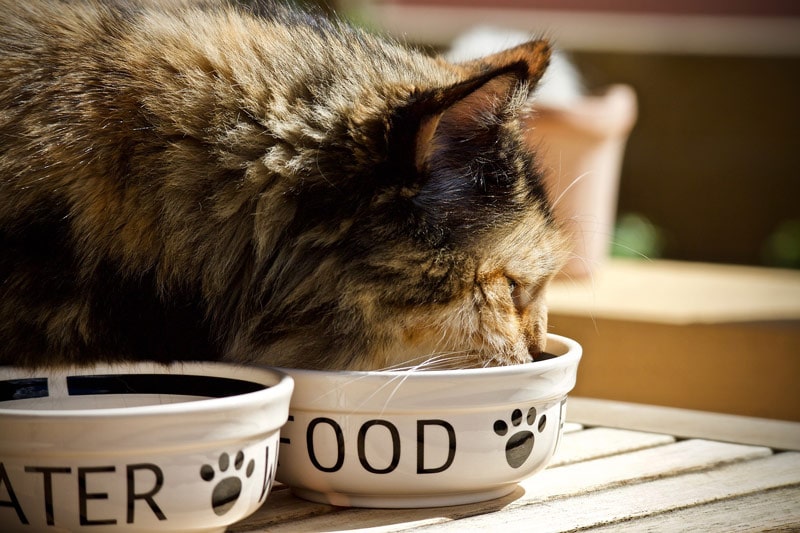
How Can I Tell if a Yogurt Product Is Safe for My Cat?
The yogurt’s ingredients list will show you if there are any harmful ingredients. However, it’s best to serve plain yogurt products that are preservative-free and unsweetened. Sugar isn’t toxic to cats, but it’s full of empty calories and not something cats need. Xylitol is generally considered toxic, and should be avoided.
Is Blended Greek Yogurt Safe to Serve?
Blended yogurt can be complicated to evaluate since it contains multiple ingredients, including flavorings such as lemon juice concentrate and sweeteners, which can make it hard to figure out whether the product is safe for pets.
Citrus products in yogurt can cause digestive issues and should not be on your feline’s menu. Call your veterinarian if your cat eats something you’re concerned about or becomes lethargic and starts having stomach trouble.
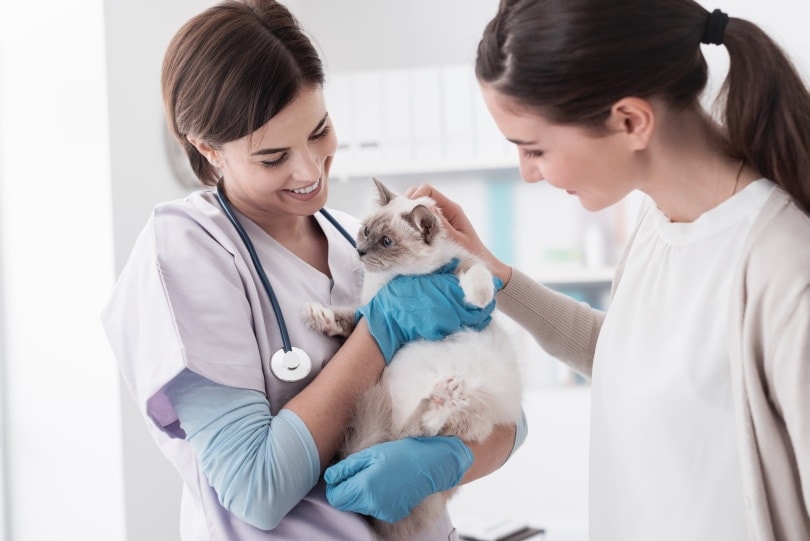
Frequently Asked Questions
Below, we’ll answer some of the most frequently asked questions from pet parents.
Can Cats Eat the Honey in Greek Yogurt?
While yogurt and honey’s sweet and sour deliciousness may make human mouths water, cats could probably care less about the sweet part! Cats can’t taste sweet food, so they’re probably just interested in your yogurt!
Cats are carnivores, so in the wild, they eat small mammals such as mice and birds, meaning their bodies run most efficiently on animal protein, not carbohydrates. Ultimately, a tiny lick of plain Greek yogurt mixed with honey won’t hurt most adult cats, but it’s not good for them either.
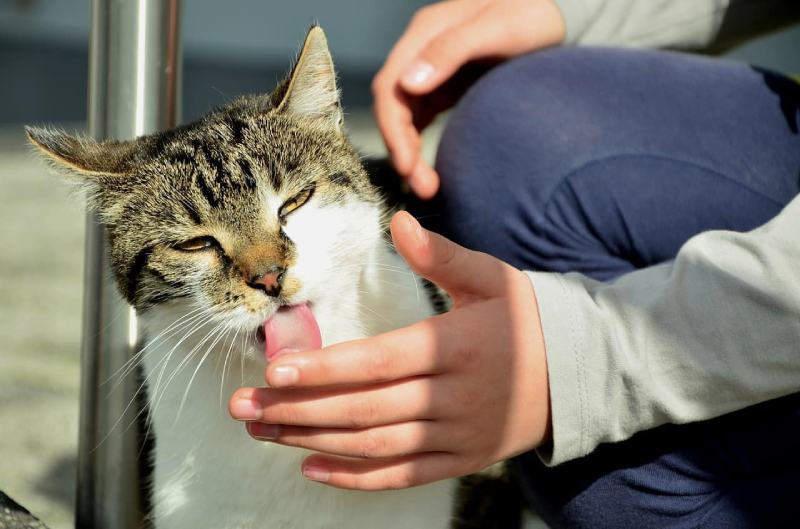
Which Human Foods Are Safe to Feed Cats?
Fresh strawberries and blueberries are fine for cats to eat but try to keep servings to about 1 inch or less to ensure your companion doesn’t consume too many calories. Raspberries, kiwis, honeydew melons, nectarines, and bananas are also okay for healthy adult cats to snack on. Pears and apricots are fine if they’re peeled, and all the seeds have been removed. As long as the following items are fully cooked and prepared without seasonings or extra fat, they can be served as treats:
- Hard-boiled eggs
- Fish
- Beef
- Turkey
- Chicken
- Pork
Grapes, raisins, and citrus products are toxic to cats and should be avoided. Check with your veterinarian before serving any new food, but especially Greek yogurt or fruit because they’re so high in sugar; some kitties, including those with diabetes, may be better off with other treats.
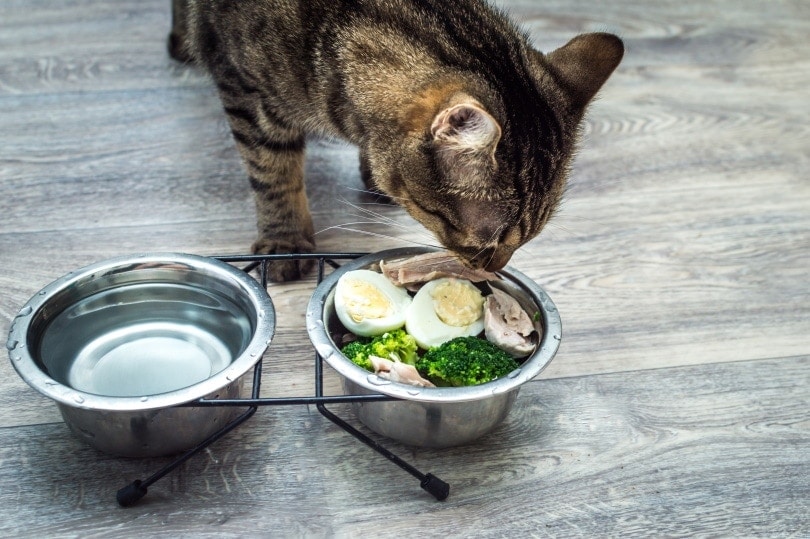
Conclusion
Healthy adult cats can generally have a lick or two of plain, unsweetened Greek yogurt, but they really should only have it occasionally. While there’s nothing harmful in plain yogurt, the calories can add up and lead to weight gain, and one of the simplest ways to support your cat’s health is to ensure they stay at an appropriate weight.
Cats that have trouble digesting lactose should not eat Greek yogurt since dairy products like yogurt may cause them to have stomach issues.
Featured Image Credit: mama_mia, Shutterstock




